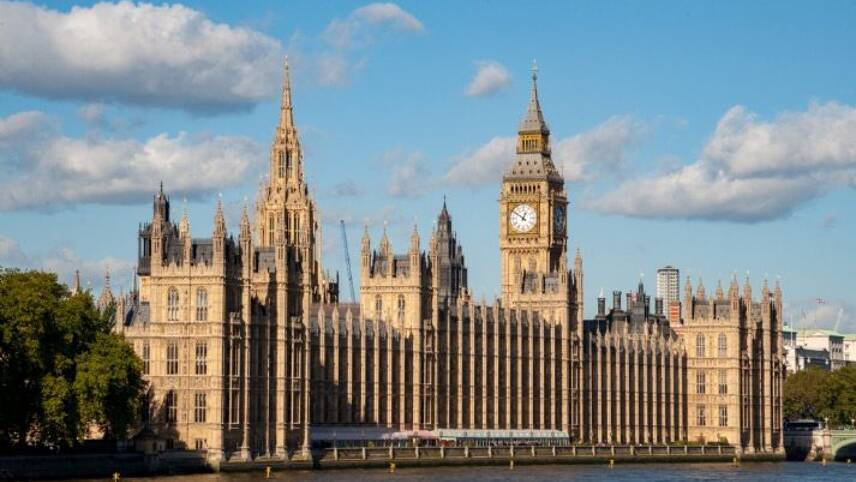Register for free and continue reading
Join our growing army of changemakers and get unlimited access to our premium content

One of the key aspects of the citizens’ assembly is to map out the steps that the public can take to contribute to the net-zero emissions target
The invitations will be sent out on Wednesday (6 November), and the 30,000 invites will be chosen at random to participate in the Climate Assembly UK, which will run for four weekends between January to March next year in Birmingham. A sample of the invites will then be selected from respondents to the invites, with 110 people taking part in the assembly.
Rachel Reeves MP, Chair of the Business, Energy and Industrial Strategy (BEIS) Committee said, “Adopting the net-zero target was a major milestone for the UK, reflecting the strong cross-party support for action on climate change.
“We now need to set out a clear roadmap for the actions to achieve net-zero. It’s very clear that we will all need to play a part in meeting this target and that we all share a responsibility to future generations to do so. Finding solutions which are equitable and have public support will be crucial. Parliament needs to work with the people and with the Government to address the challenge of climate change.”
The UK set its legally binding net-zero emissions target by 2050 in June 2019, and the citizens’ assembly has been set up in response to it. The Government’s target will also tap into the growing influence of youth climate strikes. A Youth Steering Group will be led by DCMS and the British Youth Council to advise the Government on priorities for climate change, waste and recycling and biodiversity loss. They will start their review in July.
The target was set just over a month after the Committee on Climate Change (CCC) published its recommendations to Government on legislating for a net-zero carbon economy. The body’s advice includes bringing the ban on new petrol and diesel car sales forward to 2035; quadrupling the UK’s renewable energy generation capacity; improving biodiversity across 20,000 hectares of land annually and deploying carbon capture and storage (CCS) at scale.
Crucially, the CCC believes that reaching net-zero by 2050 can be done using between 1-2% of GDP in 2050. This is the same level of funding currently allocated to work related to compliance with the Climate Change Act.
Caroline Lucas added: “Tackling the climate emergency is not an issue just for politicians. It needs to include everyone, or we will not succeed in building a sustainable, just and fair society. Citizens’ assemblies are the ideal vehicle to do this, and I warmly welcome this initial step.
“More and more people want to see action on the climate emergency because they see the impact it will have on their lives and the lives of their children. Mapping out the route to a sustainable future will require everyone’s creativity and commitment, as well as their engagement in some of the challenging decisions and trade-offs that lie ahead.
“But we are running out of time. The make-up of the next Parliament will be critical in deciding whether we can turn away from the climate-wrecking path we are on. That’s why this general election is the Climate election.”
Public opinions
One of the key aspects of the citizens’ assembly is to map out the steps that the public can take to contribute to the net-zero emissions target.
A new survey of 2,000 adult commissioned by Good Energy has found that two-thirds of the public is more willing to make changes to their lifestyles due to concerns regarding climate change.
According to the survey, 15% of Brits have considered switching to a green energy supplier, but half of the total survey respondents were unaware of the difference it could make to mitigate climate impacts.
In response, Friends of the Earth has launched a new campaign, calling on the public to switch to 100% green energy tariffs and contracts.
Commenting on the citizen’s assembly, Dave Timms, head of political affairs at Friends of the Earth, said: “Tackling the climate emergency with the speed required will require radical changes to our economy, infrastructure and even to society so it’s important that there is a consensus among citizens. Much of what needs to be done already commands widespread public support and it is politicians that just need to bloody-well get on with it now.
“Other questions are more tricky and Citizens’ Assemblies can play an important part in finding policies which will ensure all sections of the public, especially the poorest and most marginalised communities, have a voice in the way forward.”
Be part of edie’s Net-Zero November
In light of the UK’s net-zero commitment and the huge opportunity, this has presented to sustainability and energy professionals across the country, edie is running Net-Zero November: an entire month’s worth of content dedicated to informing and inspiring our readers to position themselves at the forefront of the net-zero revolution.
View all of our exclusive Net-Zero November content here.
Make a net-zero-themed pledge on behalf of your business here.
Matt Mace


Please login or Register to leave a comment.